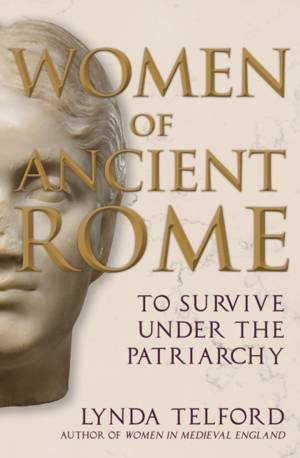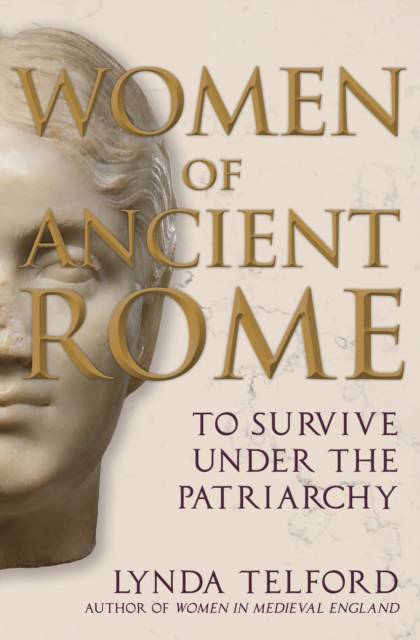
- Afhalen na 1 uur in een winkel met voorraad
- Gratis thuislevering in België vanaf € 30
- Ruim aanbod met 7 miljoen producten
- Afhalen na 1 uur in een winkel met voorraad
- Gratis thuislevering in België vanaf € 30
- Ruim aanbod met 7 miljoen producten
Zoeken
€ 32,45
+ 64 punten
Omschrijving
According to legend, Rome was a settlement of warlike young men, from Alba, an area in the Alban Hills just southeast of Rome. When they settled there, they inaugurated the earliest of Rome's traditions, including the relationship between men and women. Any woman who lapsed from the required level of 'spectacular' virtue was fiercely punished, and the failings of women would often be the centre of Rome's legends, such as the battle between the Horatii in Rome and the Curiattii in Alba in the seventh century BC. Women of Ancient Rome describes how early austerities gradually eased, yet retained the authority of the Paterfamilias in family life, also how the differing classes reacted to each other, exploring religion and 'outsiders' such as soldiers' wives, slaves, prostitutes and how the poor coped with a world giving them few personal choices. With chapters on family and the importance of stoicism over affection, marriage and motherhood, priestesses, slaves and prostitutes, old age and death, Lynda Telford analyses the struggle for survival of women from all classes under one of the oldest codified patriarchal systems devised.
Specificaties
Betrokkenen
- Auteur(s):
- Uitgeverij:
Inhoud
- Aantal bladzijden:
- 320
- Taal:
- Engels
Eigenschappen
- Productcode (EAN):
- 9781398106994
- Verschijningsdatum:
- 15/04/2023
- Uitvoering:
- Hardcover
- Formaat:
- Genaaid
- Afmetingen:
- 160 mm x 241 mm
- Gewicht:
- 498 g

Alleen bij Standaard Boekhandel
+ 64 punten op je klantenkaart van Standaard Boekhandel
Beoordelingen
We publiceren alleen reviews die voldoen aan de voorwaarden voor reviews. Bekijk onze voorwaarden voor reviews.











